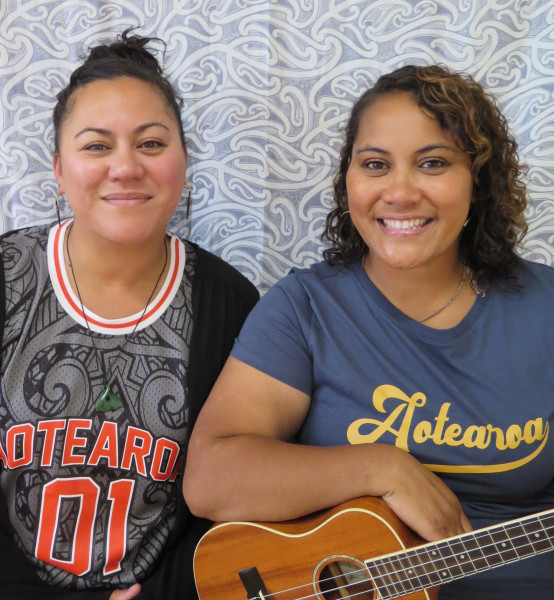Loopy Tunes makes music memorable
Loopy Tunes makes music memorable

Music has been a huge influence on the lives of Christchurch-based sisters Leah Williams-Partington and Siu Wiliams-Lemi.
Not only has music provided an outlet for the creative siblings of Tongan, Māori, Chinese and Tahitian heritage, but it has also paved a career pathway and life mission for them both.
The Directors of Loopy Tunes aim to create educational, relatable, waiata which instils a sense of belonging, and makes tamariki happy when they hear the songs.
However, the duo has set even loftier goals to achieve, Leah says.
“We hope to create small ripples that will have long-lasting effects in the revitalisation of our languages among the next generation.
“We want tamariki of any culture, but, specifically our Pacific cultures, to stand tall and to be proud of who they are, and of their heritage.”
One of the duo’s favourite songs is Ngāti-Fruit Salad Kid - a song they produced to inspire tamariki to honour where they come from, she adds.
While growing up, the sisters could not escape music - from singing in church and school choirs, learning and playing instruments, performing in concerts with orchestras or bands, it was always there in the background.
Siu plays the guitar, saxophone and clarinet, has led worship groups, was a vocalist with Christchurch’s Mainland Big Band for several years and is the Creative Director at Loopy Tunes, writing and composing songs.
Meanwhile, as the Business Director, Leah takes care of the administration side of things as well as playing the flute and guitar.
Loopy Tunes started at Beckenham Methodist Church, where the sisters attended growing up, Leah explains.
“Siu was part of the group who initiated Loopy Tunes, and I joined in when it started up, along with other volunteers within the church.
“They wanted to start a music group for families with young children in the area and saw it as an opportunity for our church to provide a community outreach programme, by also providing morning tea afterwards, and a time for tamariki to play, and for parents/caregivers to chat.”
Over a decade later, and Loopy Tunes has grown from one session a week, to two sessions, and then, through Siu’s work at the time, with the Methodist Church, she was invited to run sessions in other churches.
“I also agreed to help out with these, and one extra session a week soon became two, then four, and now we run eight Outreach Music sessions a week, around Ōtautahi,” Leah says.
Over the years, Loopy Tunes naturally evolved and started to have an intentionally bilingual focus.
The sisters were pleasantly surprised by the response, which encouraged them to continue down this path, which led to them creating YouTube videos to help families learn waiata at home.
“In 2019, because the invitations to perform at preschools and local children’s events had been increasing, we formalised Loopy Tunes as a partnership, and were ready to record and release our own music, and to make Loopy Tunes our full-time gig.”
Leah and Siu view Loopy Tunes as a resource for families and the education sector appropriate for families with young children.
“We intentionally create waiata the whole whānau can listen to, because, well, we all know that kids love repetition,” Leah says.
“What we also want to provide is an opportunity for families to connect, or reconnect, with their reo, or to learn a new reo.
“We ourselves are still on our journey of learning Māori and reconnecting with our Tongan language we used to be fluent in and Loopy Tunes offers an opportunity for te reo Māori, Tongan, Samoan and other Pacific languages to be embraced in a format that is fun and engaging.”
Currently, the sisters are working on a project in collaboration with Whānau Awhina Plunket, made possible with support from the Ministry for Pacific Peoples (MPP) Community COVID-19 Fund.
Ten albums in 10 Pacific languages which contain a mixture of bilingual nursery rhymes and simple traditional songs that will be part of a toolkit for families and Early Childhood Education centres will be produced due to the collaboration.
It is an exciting time for Loopy Tunes and their partners, and Leah says the more beautiful feedback they get about their songs and mahi, the more encouraged they are to keep doing what they do while trying to get others on board.
Follow Loopy Tunes on Facebook and Instagram, or visit Loopy Tunes for more information.
